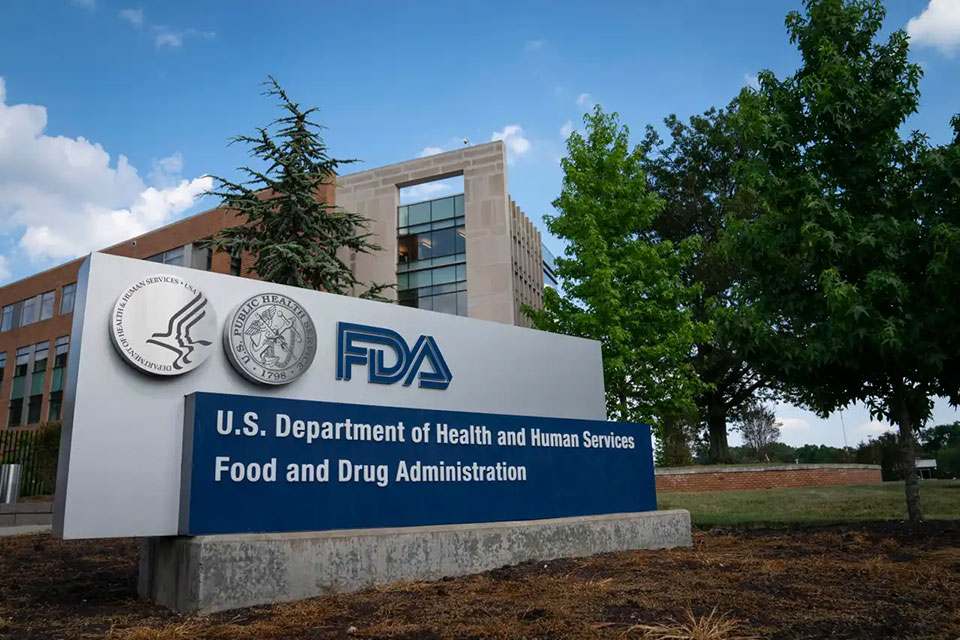Business
FDA sidesteps MDMA controversy at PTSD meeting, but public pushes back
Published
10 months agoon

A recent U.S. Food and Drug Administration meeting on post-traumatic stress disorder treatments has reignited, within more official channels, the debate over the agency’s decision last month to delay approval of privately-owned Lykos Therapeutics‘ MDMA-assisted therapy.
The Sept. 6 hybrid public meeting, hosted by the Reagan-Udall Foundation for the FDA, drew experts, advocates and critics to discuss how to move forward advancing PTSD treatment. While the official agenda skirted the recent MDMA decision, public comments and a subsequent press briefing brought a spotlight back on the issue.
The FDA’s decision last month sent shockwaves through the psychedelic therapy community. Many close to the issue, including Multidisciplinary Association for Psychedelic Studies (MAPS), have continued to tout that MDMA-assisted therapy had shown promising results in clinical trials with PTSD patients.
Dr. Michael Mithoefer, former senior medical director at MAPS Public Benefit Corporation, said in a follow-up press briefing with reporters that “about two-thirds of people lost the diagnosis of PTSD” after treatment.
Despite so, the FDA ended up requesting more information before granting approval for Lykos’ proposed new drug, a move that has drawn criticism from various groups. Participants on the Friday FDA meeting call didn’t mince words during the public comment period.
“In my opinion, the FDA’s review of MDMA-assisted therapy failed,” said Dr. Robert M. Grant, a professor of medicine at the University of California, San Francisco. Grant has served on FDA advisory committees for four new drug applications and is trained in MDMA-assisted psychotherapy.
Grant said the agency “provided inconsistent guidance, did not adhere to previously given instructions, and did not offer context to its external advisors.”
He also stressed the “critical” need for better PTSD treatments, noting that “existing therapies reach less than 5% of the impacted population.”
Regarding the clinical trials, Grant defended the methodology used, saying he believed that the use of “blinded adherence raters as a primary outcome in MDMA trials is rigorous and best practice.” He added that alternative blinding methods suggested by critics “have been tried and rejected based on evidence.”
“The FDA missed an opportunity to provide clear guidance on how to move forward,” he said.
FDA call
The meeting’s official presentation largely avoided direct discussion of the MDMA decision, instead focusing on the wider scene for PTSD treatment and research, as well as the condition’s references in history’s past.
Dr. Paula Schnurr, executive director of the National Center for PTSD, declared on the call that the U.S. Department of Veterans Affairs is also “preparing for the potential future implementation of psychedelic treatments by supporting and conducting research on medications such as MDMA and psilocybin for treating PTSD and depression.”
She called psychedelic medicine “one promising avenue.”
However, the brief acknowledgments did little to address questions surrounding the FDA’s recent decision.
It was during the public comment period that the real-world impact of the FDA’s decision grabbed the spotlight. Veterans, PTSD survivors, and researchers took turns sharing personal experiences and expressing frustration with the delay in approving MDMA-assisted therapy.
The public comments painted the growing disconnect between the FDA’s cautious approach and more insistent needs expressed by potential beneficiaries of MDMA-assisted therapy.
“More than 150,000 veterans have died from suicide – 15 times the number killed in combat,” said Jesse Gould, founder of the Heroic Hearts Project. “This is a national crisis, and we need to act urgently.”
“Veterans are already traveling overseas for life-saving psychedelic therapies because they know these treatments work. The VA itself is running clinical trials on MDMA, and it supports these therapies. We cannot wait years for the FDA to catch up while more veterans die,” he added.
Others did not supported immediate approval, however. Dr. Nese Devenot, a senior lecturer at Johns Hopkins University with expertise in psychedelic bioethics, cautioned against lowering research standards or promoting false hope.
“Industry lobbyists have exerted pressure to lower these standards, and organizations funded by pharmaceutical companies have played a role in this push,” Devenot said. “The recent FDA decision to reject MDMA-assisted therapy came with new requirements, such as ensuring that any therapeutic adjuncts to drugs are evidence-based psychotherapies.”
Dr. Michael Abrams, a senior researcher with Public Citizen, defended the FDA’s decision. He cited concerns about unblinding bias in trials, lack of physiological data and the need to differentiate between drug and therapy effects.
“While these drugs clearly have powerful brain-based effects, evidence regarding their precise and safe actions in treating PTSD remains incomplete,” Abrams said.
“It’s important that psychedelic trials differentiate between the effects of the drug and the non-drug intervention, such as therapy. Both the drug and placebo groups in the MDMA trial showed positive effects, indicating that intensive talk therapy alone is beneficial. This offers hope for non-drug approaches as well,” he added.
The FDA, for its part, defended its stance.
“It’s essential that we collect data on the safety and effectiveness of these treatments because patients with PTSD, like all patients, deserve safe and effective options,” said Dr. Marta Sokolowska, deputy center director for substance use and behavioral health in the FDA’s Center for Drug Evaluation and Research.
MAPS’ follow-up call
While the FDA largely avoided direct discussion of the recent MDMA decision, a subsequent press briefing organized by MAPS circled in on the issue.
The FDA call, “illustrated the growing public interest in psychedelic-assisted therapies, with nearly every speaker discussing their potential in a meeting that wasn’t specifically about psychedelics,” according to Betty Aldworth, director of communications for MAPS.
Aldworth noted, “Eighty members of Congress, the Veterans Affairs Administration, trauma experts, patient advocates, and 14 of 23 stakeholders who gave oral testimony agree that the existing evidence base for psychedelic-assisted therapies merit widespread, and growing, support.”
Aldworth didn’t mince words about the impact of the FDA’s delay, and said, “It has been heartbreaking, not just for MAPS, but for the thousands of people still suffering from PTSD who have reached out to us, desperate for effective treatment.”
She claimed that the delay is pushing people towards the underground psychedelics market in search of medicine.
“Many people are using psychedelics in unregulated settings because they see them as their last chance to heal,” she said on the call.
Only two FDA-approved drugs for PTSD are available, and they are not effective for all patients, according to Dr. Bessel van der Kolk, a pioneering trauma researcher.
“MDMA helps people revisit dark places and say, ‘This happened, but it wasn’t my fault.’ Prozac doesn’t cause that,” he said on the call.
To another end, one researcher on the MAPS call stressed the need for more inclusive diagnostic criteria.
“The DSM-5 diagnostic criteria are highly suspect, especially when it comes to racial trauma,” Dr. Darron Smith said. “We need more holistic tools to evaluate healing and transformation, particularly for communities of color.”
MAPS outlined its next steps, including continuing Phase 3 clinical trials in addition to educating healthcare providers and policymakers. MAPS will also continue working with regulatory bodies, especially in states like Colorado and Oregon that are implementing their own regulated psychedelic treatment models.
“We are going to be putting a lot of our energies into the kinds of efforts that are going to provide access, regardless of what the FDA requires because the reality today is that many people are accessing these treatments,” Aldworth said.

Author: mscannabiz.com
MScannaBIZ for all you Mississippi Cannabis News and Information.
You may like
-


Mike Tyson Tells Trump To Reschedule Marijuana And Free Prisoners In Fox News Appearance
-


New Hampshire Bill To Ease Psilocybin Penalties Advances Through House But Is Tabled In Senate
-


Honoring LGBTQIA+ Cannabis Trailblazers: A Pride Month Reflection
-


Anacostia Organics: Cannabis with care in the capital
-


Doctors Group Launches Campaign Empowering More Healthcare Professionals To Join Drug Decriminalization Movement
-


Star signs and cannabis strains: July 2025 horoscopes
Business
Nebraska medical cannabis regulations stall in legislative committee
Published
2 months agoon
April 18, 2025

A Nebraska legislative committee voted 5-3 against advancing a bill designed to implement and regulate the state’s medical cannabis program, leaving legislators and advocates searching for alternative paths forward, according to the Nebraska Examiner.
The General Affairs Committee rejected Legislative Bill 677, sponsored by State Sen. Ben Hansen of Blair, during a Thursday vote where committee members declined to offer amendments to the legislation, the publication reported.
“I don’t want to shut all the doors right now, but some doors are closing, and they’re closing fast, and so we have to act,” Hansen told reporters after the vote, according to the Examiner.
Nebraska voters approved medical cannabis in November 2024, with residents legally permitted to possess up to 5 ounces with a healthcare practitioner’s recommendation since mid-December. However, the regulatory commission created by the ballot initiative lacks effective power and funding to regulate the industry.
Hansen described his legislation as “a must” for 2025 to prevent a “Wild West” scenario in the state’s cannabis market. The bill would have expanded regulatory structure through the Nebraska Medical Cannabis Commission and extended deadlines for regulations and licensing to allow more time for implementation, the Examiner noted.
Committee disagreements centered on proposed restrictions. A committee amendment would have prohibited smoking cannabis and the sale of flower or bud products while limiting qualified healthcare practitioners to physicians, osteopathic physicians, physician assistants or nurse practitioners who had treated patients for at least six months.
The amendment also would have limited qualifying conditions to 15 specific ailments including cancer, epilepsy, HIV/AIDS, and chronic pain lasting longer than six months.
State Sen. Bob Andersen of Sarpy County opposed allowing vaping due to concerns about youth drug use, while committee chair Rick Holdcroft suggested selling cannabis flower would be “a gateway toward recreational marijuana,” a claim Hansen “heavily disputed,” according to the Examiner.
Hansen now faces a difficult path forward, requiring at least 25 votes to pull the bill from committee and then needing 33 senators to advance it across three rounds of debate, regardless of filibuster attempts.
Crista Eggers, executive director of Nebraskans for Medical Marijuana, remained optimistic despite the setback.
“This will not be the end,” Eggers said, according to the outlet. “Giving up has never been an option. Being silenced has never been an option. It’s not over. It’s not done.”
The legislative impasse is further complicated by ongoing litigation. Former state senator John Kuehn has filed two lawsuits challenging the voter-approved provisions, with one appeal pending before the Nebraska Supreme Court. The state’s Attorney General is also trying to do something about the hemp question, akin to other states across the country.

Author: mscannabiz.com
MScannaBIZ for all you Mississippi Cannabis News and Information.
Business
One of Las Vegas’ cannabis lounges closes its doors
Published
2 months agoon
April 18, 2025

Nevada’s cannabis lounge experiment faces some expected growing pains, with one of just two state-licensed venues closing its doors after barely a year in business, according to the Las Vegas Weekly.
“The regulatory framework, compliance costs and product limitations just don’t support a sustainable business model,” said Thrive Cannabis managing partner Mitch Britten, who plans to convert the space into an event venue until regulations loosen up.
The closure leaves Planet 13’s Dazed Consumption Lounge as the only operational state-regulated cannabis lounge in Nevada. Dazed manager Blake Anderson estimates the venue attracts around 250 customers daily, primarily tourists. One other establishment, Sky High Lounge, has operated since 2019 on sovereign Las Vegas Paiute Tribe land exempt from state regulations.
Even with Nevada regulators conditionally approving 21 more lounge licenses, potential owners are struggling to meet the $200,000 liquid assets requirement – particularly social equity applicants from communities hit hardest by prohibition.
Recreational marijuana has been legal statewide since 2017, but public consumption remains prohibited. That’s created an obvious disconnect for the millions of tourists who visit Las Vegas annually but have nowhere legal to use the products they purchase. The state recorded roughly $829 million in taxable sales during the 2024 fiscal year.
“It always comes down to money, and it’s difficult to get a space if you can’t afford to buy a building. On top of that, getting insurance and finding a landowner who’s willing to lease to a cannabis business is a challenge in and of itself,” said Christopher LaPorte, whose consulting firm Reset Las Vegas helped launch Smoke and Mirrors, told Las Vegas Weekly.
Many think the key to future success lies in legislative changes that would allow lounges to integrate with food service and entertainment – playing to Las Vegas’s strengths as a hospitality innovator. In the meantime, the industry will continue to adapt and push forward.
“Things take time,” LaPorte said. “There’s a culture that we have to continue to embrace and a lot of education that we still have to do. But at the end of the day, tourists need a place to smoke, and that’s what these places are.”

Author: mscannabiz.com
MScannaBIZ for all you Mississippi Cannabis News and Information.


Psyence Group Inc. (CSE: PSYG) told investors that it will be consolidating all of its issued and outstanding share capital on the basis of every 15 existing common shares into one new common share effective April 23, 2025 with a record date of April 23, 2025. As a result of the consolidation, the issued and outstanding shares will be reduced to approximately 9,387,695 on the effective date.
This is the second time a Psyence company has consolidated shares recently. In November, its Nasdaq-listed associate, Psyence Biomedical Ltd. (Nasdaq: PBM), implemented a 1-for-75 share consolidation as the psychedelics company worked to maintain its Nasdaq listing.
Psyence Group reported earnings in February when the company delivered a net loss of C$3 million and was reporting as a going concern. At the end of 2024, the company said it had not yet achieved profitable operations, has accumulated losses of C$48,982,320 since its inception.
Total assets at the end of 2024 were C$11,944,478 and comprised predominantly of: cash and cash equivalents of C$10,611,113, other receivables of C$159,808, investment in PsyLabs of C$1,071,981 and prepaids of C$68,243.
Still, the company is pushing ahead. Psyence told investors that it has historically secured financing through share issuances and convertible debentures, and it continues to explore funding opportunities to support its operations and strategic initiatives. “Based on these actions and
management’s expectations regarding future funding and operational developments, the company believes it will have sufficient resources to meet its obligations as they become due for at least the next twelve months,” it said in its last financial filing.
The company said it believes that the consolidation will position it with greater flexibility for the development of its business and the growth of the company.

Author: mscannabiz.com
MScannaBIZ for all you Mississippi Cannabis News and Information.

Mike Tyson Tells Trump To Reschedule Marijuana And Free Prisoners In Fox News Appearance
New Hampshire Bill To Ease Psilocybin Penalties Advances Through House But Is Tabled In Senate

Honoring LGBTQIA+ Cannabis Trailblazers: A Pride Month Reflection

Anacostia Organics: Cannabis with care in the capital

Doctors Group Launches Campaign Empowering More Healthcare Professionals To Join Drug Decriminalization Movement

Star signs and cannabis strains: July 2025 horoscopes

Using Hemp Flour And Oil Can Make Gluten-Free Baked Goods With ‘Optimal’ Texture And ‘Significant’ Nutrition, Study Shows

10 Alabama CBD Stores, Vape Shops Raided; 4 Hemp Businesses Sue State

Four Arrested for CBD Distillate Theft Valued at $3.6M

ALEA raids 9 stores across Alabama for allegedly violating state marijuana laws

What’s Changed Since Connecticut Legalized Adult-Use Marijuana 4 Years Ago?

Police: Man caught with 250 pounds of marijuana

California Cannabis Excise Tax Hike Takes Effect as Consumers Face Mounting Cost-of-Living Crisis

First legal cannabis dispensary to open in Genesee County

Judge Dismisses Lawsuit Seeking to Invalidate Nebraska Medical Cannabis Reforms

Mike Tyson leads athletes in push for marijuana reform: 'Cannabis is not a drug'

Rand Paul Says GOP Congressman’s Hemp Ban Bill Would ‘Completely Destroy’ The Industry

Cannabis legalization could help GOP win young voters, former congressman says (Newsletter: June 30, 2025)

Alabama Expected to Issue Medical Cannabis Dispensary Licenses Soon

Mississippi AG Says Intoxicating Hemp Products Are ‘Prohibited’ Under State Law

RAW Rolling Papers Founder Buys High Times

Jones Soda Co. Sells Mary Jones THC Beverage Brand

Chicago Police Can’t Search Vehicles Based on Smell of Raw Cannabis Under New Rules

Tilray Brands Subsidiary is First Company in Italy Approved to Distribute Medical Cannabis Flower

Alert: Department of Cannabis Control updates data dashboards with full data for 2023

Connecticut Appoints The US’s First Cannabis Ombudsperson – Yes there is a pun in there and I’m Sure Erin Kirk Is Going To Hear It More Than Once!

5 best CBD creams of 2024 by Leafly

Free delta-9 gummies from Bay Smokes

EU initiative begins bid to open access to psychedelic therapies
New Study Analyzes the Effects of THCV, CBD on Weight Loss

Mississippi city official pleads guilty to selling fake CBD products

Curaleaf Start Process Of Getting Their Claws Into The UK’s National Health System – With Former MP (Resigned Today 30/5/24) As The Front Man

May 2024 Leafly HighLight: Pink Runtz strain

5 best autoflower seed banks of 2024 by Leafly

Horn Lake denies cannabis dispensary request to allow sale of drug paraphernalia and Sunday sales | News

Discover New York’s dankest cannabis brands [September 2024]

Press Release: CANNRA Calls for Farm Bill to Clarify Existing State Authority to Regulate Hemp Products

Nevada CCB to Accept Applications for Cannabis Establishments in White Pine County – “Only one cultivation and one production license will be awarded in White Pine County”

Local medical cannabis dispensary reacts to MSDH pulling Rapid Analytics License – WLBT

6 best CBD gummies of 2024 by Leafly

The Daily Hit: October 2, 2024

5 best THC drinks of 2024 by Leafly

5 best delta-9 THC gummies of 2024 by Leafly

Weekly Update: Monday, May 13, 2024 including, New Guide for Renewals & May Board meeting application deadline

People In This State Googled ‘Medical Marijuana’ The Most, Study Shows

Thailand: Pro-cannabis advocates rally ahead of the government’s plan to recriminalize the plant

PRESS RELEASE : Justice Department Submits Proposed Regulation to Reschedule Marijuana

Press Release: May 9, STIIIZY and Healing Urban Barrios hosted an Expungement Clinic & Second Chance Resource Fair
Trending
-

 California Cannabis Updates1 year ago
California Cannabis Updates1 year agoAlert: Department of Cannabis Control updates data dashboards with full data for 2023
-

 Breaking News1 year ago
Breaking News1 year agoConnecticut Appoints The US’s First Cannabis Ombudsperson – Yes there is a pun in there and I’m Sure Erin Kirk Is Going To Hear It More Than Once!
-

 best list11 months ago
best list11 months ago5 best CBD creams of 2024 by Leafly
-

 Bay Smokes1 year ago
Bay Smokes1 year agoFree delta-9 gummies from Bay Smokes
-

 Business10 months ago
Business10 months agoEU initiative begins bid to open access to psychedelic therapies
-

 cbd1 year ago
cbd1 year agoNew Study Analyzes the Effects of THCV, CBD on Weight Loss
-

 Mississippi Cannabis News1 year ago
Mississippi Cannabis News1 year agoMississippi city official pleads guilty to selling fake CBD products
-

 Breaking News1 year ago
Breaking News1 year agoCuraleaf Start Process Of Getting Their Claws Into The UK’s National Health System – With Former MP (Resigned Today 30/5/24) As The Front Man
